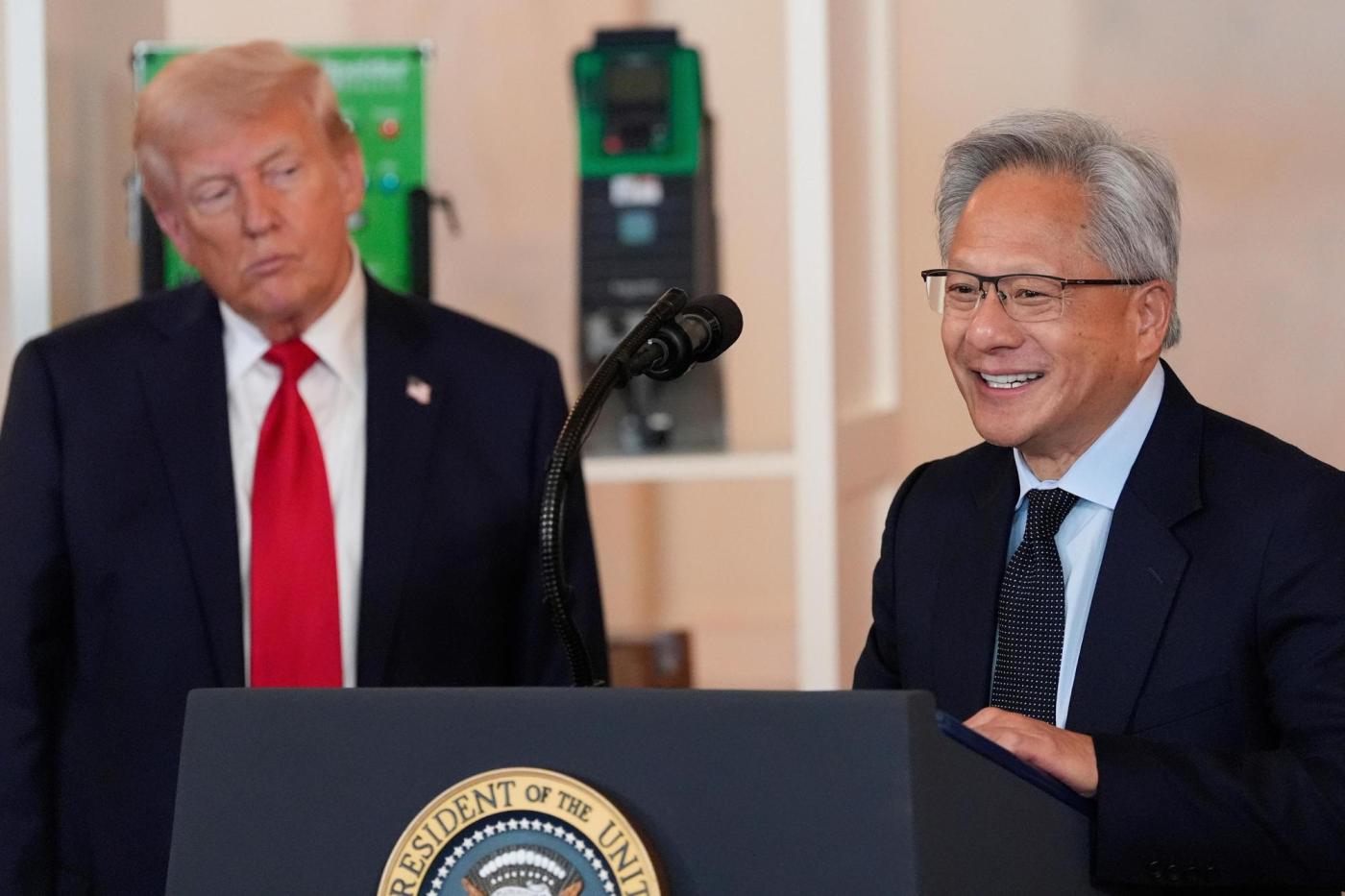
(Bloomberg/Daniel Flatley, Annmarie Hordern and Jonathan Ferro) — Treasury Secretary Scott Bessent said the recent deal to allow Nvidia Corp. and Advanced Micro Devices Inc. to resume lower-end AI chip sales to China, on the condition they give the US government a 15% cut of the related revenue, could serve as a model for others.
“I think we could see it in other industries over time,” Bessent said Wednesday in a television interview on Bloomberg Surveillance. “Right now, this is unique, but now that we have the model and the beta test, why not expand it?”
Bessent credited President Donald Trump with the “very unique solution” of allowing Nvidia to expand in China and become a bellwether for Chinese technology, with the US taxpayer getting “a share of” the reward. The revenue the Treasury receives from the arrangement will go to pay down debt, he said.
Related Articles
Bay Padel sport venue signs lease in Google’s downtown San Jose village
In one California city, drones will soon replace police officers as first-response option for 911 calls
Why some companies are making it extra difficult to delete your data
Altera chops jobs in San Jose as pace of Bay Area tech worker losses eases
AI startup Perplexity makes $34.5 billion bid for Google’s Chrome browser
“If we could make a substantial debt” repayment, that would then allow for discussions about a program of sending money to taxpayers, he also said.
Asked about reporting that China is urging its companies to avoid the Nvidia H20 processors now allowed for its market, Bessent said “sure, we can discuss that” with the Chinese. “But it also tells me that they are worried about the Nvidia chips becoming the standard in China.”
China Talks
On Tuesday, Bessent said that he’d be meeting again with his Chinese counterparts “within the next two or three months,” speaking on Fox Business. He dismissed the possibility of China emulating other US trading partners in winning tariff relief in return for boosting investments in the US.
When asked if China could make pledges worth billions of dollars like Japan, South Korea and the EU have as part of their trade agreements, Bessent said “my sense is no because a lot of the buyout or the funds from the buyout are going to go to critical industries that we need to reshore and a lot of those need to be reshored away from China.”
Whether the industry was semiconductors, rare-earth magnets, pharmaceuticals or steel, “my sense is that isn’t what will happen,” Bessent said in an interview with Fox Business on Tuesday.
Tech and AI have been among the most high profile of areas of competition between the world’s two biggest economies. President Donald Trump has extended a pause of higher tariffs on Chinese goods for another 90 days into early November, a move that stabilized trade ties between the world’s two largest economies while they try to forge an agreement.
Chinese companies in sectors such as electric vehicles have opened factories abroad to access new markets, a move that could also help them skirt US tariffs.
He also indicated that Washington wanted to see measures from China over an extended period to stem the flow of chemicals used to make fentanyl before lowering duties Trump put in place over the issue.
“We will need to see months, if not quarters, if not a year, of progress on that before I could imagine those tariffs coming down,” he said.
–With assistance from Philip Glamann.
(Updates with comments from Bessent’s Bloomberg TV interview.)
More stories like this are available on bloomberg.com
©2025 Bloomberg L.P.